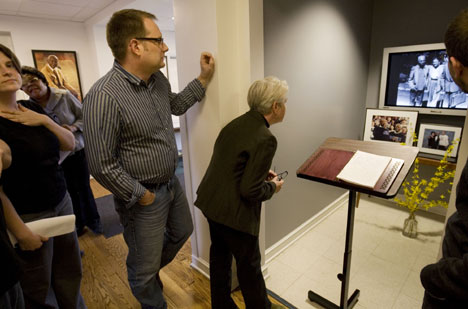
Across the country Wednesday, people began sharing memories of John Hope Franklin, a man former President Bill Clinton said was more than a historian, but "a moral compass for America pointing us in the direction of truth."
The outpouring of statements and condolences came not just from Clinton, current President Barack Obama and other American leaders, but from the many people who were personally affected by his writing, teaching and activism. Franklin, it seems, not only taught history and changed history, but he changed the lives of many individuals.
"I attended Brooklyn College during Dr. Franklin's tenure," said Stephen Hacker of San Francisco. "His passionate activism informed the history department and awakened this previously ignorant white boy to the black American experience. Professor Franklin was a giant whose legacy will endure."
"I really thought I had no heritage until I read From Slavery to Freedom," wrote Daisy Duncan Foster of Raleigh. "I thank him for telling America that ‘they cannot beat the hell out of us and think that they can heal the wounds with an apology.' Thank you God for Dr. John Hope Franklin."
(These and other comments have been posted on the condolences page of the special Duke website for John Hope Franklin here.)
Franklin lived to see November election of Obama, the first black man to hold the presidency. In a statement Wednesday, Obama said Franklin helped pave the way for a better America.
"Because of the life John Hope Franklin lived, the public service he rendered, and the scholarship that was the mark of his distinguished career, we all have a richer understanding of who we are as Americans and our journey as a people," Obama said. "Dr. Franklin will be deeply missed, but his legacy is one that will surely endure."
In the academic community, former colleagues remarked on Franklin's great mission to ensure that blacks were not excluded from the telling of American history.
But friends also said what Franklin taught them went beyond books and the classroom. Eileen Mackevich, executive director of the Lincoln Bicentennial Commission, told the Washington Post that "He taught me about race, about life, about communicating with people in respect to their differences," she said. "I am white, but he taught me things I never would have understood about race even though I've lived most of my life in integrated communities."
"I think a lot of white institutions congratulated themselves for hiring him as the first or second African American historian. But in the end, he made them feel honored to have him because of what he did for the faculty, the students and the neighborhood."